Gout
How to submit an article:
- Registered users can submit any published journal article that has a unique DOI (Digital Object Identifier) name or link to Research Hub.
- For example, you can paste the full DOI link:
https://doi.org/10.1109/5.771073or just the DOI name:10.1109/5.771073into the field above and click submit. - The person who is first to submit a valid article to Research Hub will forever be credited for it, and every article submission earns you +6 Research Points.
Gout is a type of inflammatory arthritis caused by the buildup of uric acid crystals in the joints, leading to severe pain and swelling.
Sub-Topics:
Related Topics
Published research studies are articles that present the findings of original research that has undergone a peer-review process and has been made publicly available in scholarly journals, books or other media.
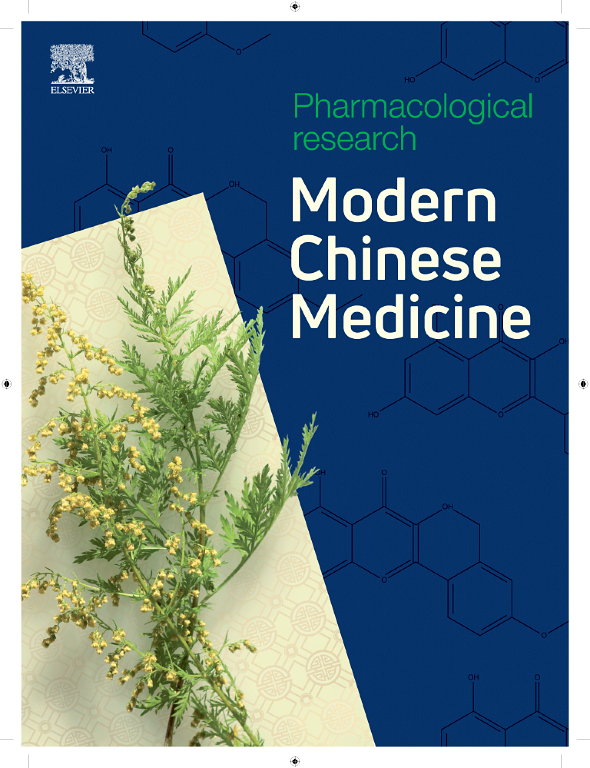
Modified Guizhi Shaoyao Zhimu Decoction in the treatment of gout: A systematic review and meta-analysis
2022 Jun Pharmacological Research - Modern Chinese Medicine Liu H, Chi X, Zhang H, Shi H, Pan J, Wang Y, et al.
Systematic Review Meta-Analysis Gout Gui Zhi Shao Yao Zhi Mu DecoctionGuizhi Shaoyao Zhimu Decoction was more effective and had fewer adverse reactions compared to the control group in the treatment of gout and the combined use of modified GSZD with other treatments showed decreased levels of C-reactive protein and erythrocyte sedimentation rate.
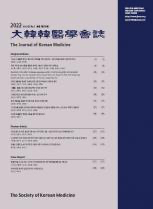
Systematic Review and Meta-analysis of Electoacupunture Efficacy on Acute Gout
2022 Jun 01 Journal of Korean Medicine Hwang JH, Song A, Song HS
Systematic Review Meta-AnalysisElectroacupuncture treatment may be effective for treating acute gout.
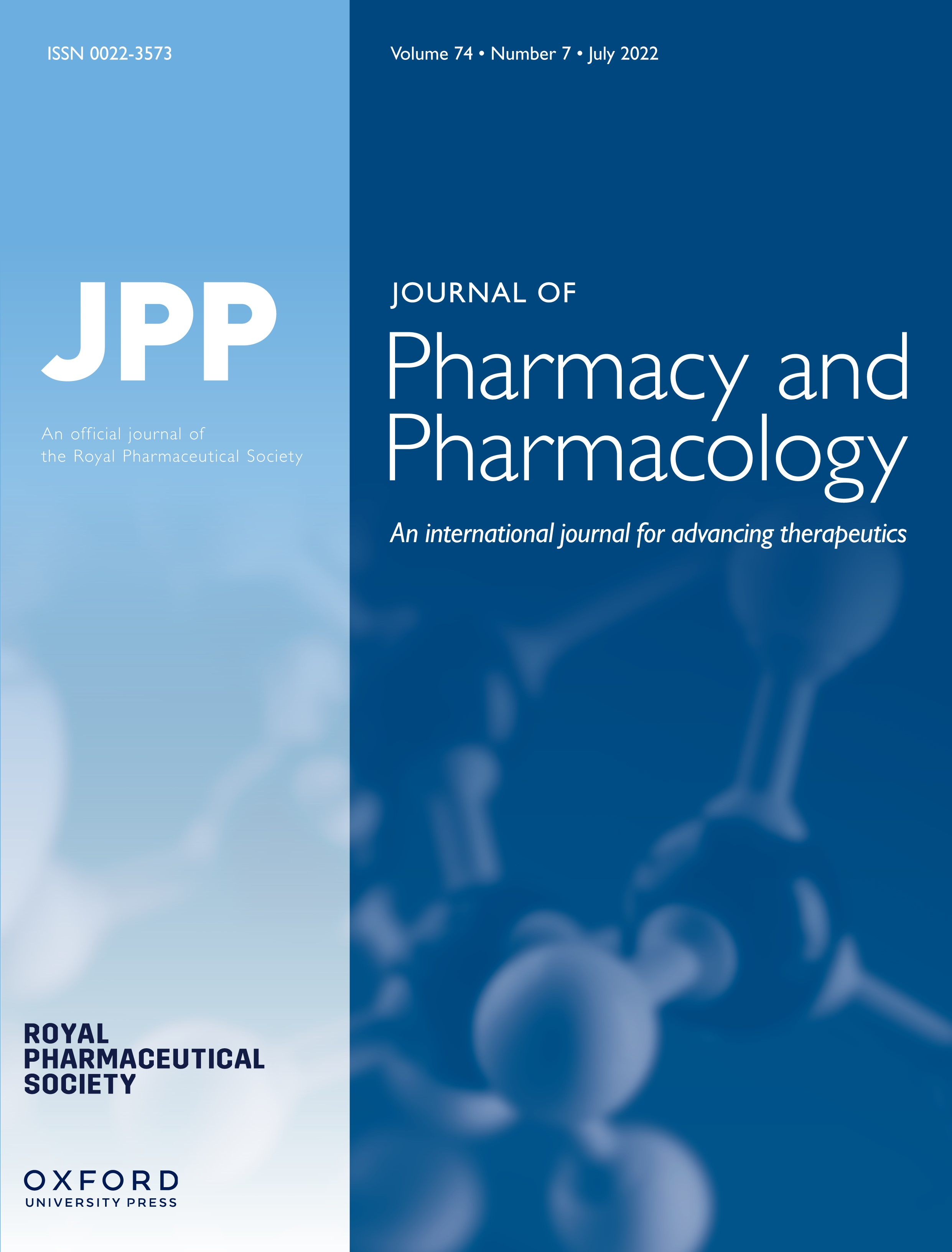
Phytochemicals in traditional Chinese medicine can treat gout by regulating intestinal flora through inactivating NLRP3 and inhibiting XOD activity
2022 May 30 Journal of Pharmacy and Pharmacology Liu ZQ, Sun X, Liu ZB, Zhang T, Zhang LL, Wu CJ
Intestinal Flora GoutTraditional Chinese medicine exhibits fewer side effects while effectively controlling inflammation and serum uric acid in gout patients.

Tianma Gouteng Decoction Exerts Pregnancy-Protective Effects Against Preeclampsia via Regulation of Oxidative Stress and NO Signaling
2022 Mar 21 Frontiers in Pharmacology Jin M, Cao B, Lin C, Li J, Xu Q, Ren Q, et al.
TGD administration not only increased the weight gain during pregnancy and revealed a hypotensive effect, but also improved the placental weight gain and attenuated fetal growth restriction in an NG-nitro-L-arginine methyl ester (L-NAME)-induced mouse PE-like model. Our results thereby provide new insights into the role of TGD as a potentially novel treatment for PE.
Network Pharmacology Antioxidant Pregnancy Preeclampsia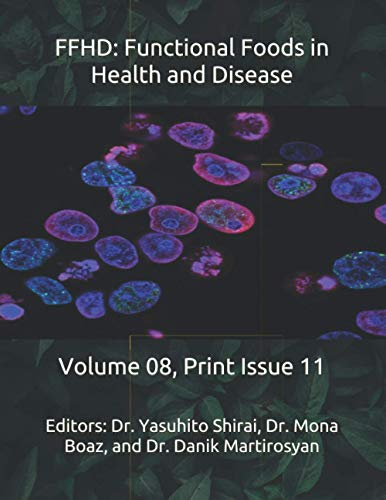
Effects of luteolin-rich chrysanthemum flower extract on purine base absorption and blood uric acid in Japanese subjects
2022 Jan 10 Functional Foods in Health and Disease Takara T, Yamamoto K, Suzuki N, Yamashita S, Iio S, Kakinuma T, et al.
Randomised Controlled Trial Uric Acid Chrysanthemum LuteolinA daily dose of Chrysanthemum flower extract was found to significantly reduce serum uric acid levels, potentially improving hyperuricemia.
Research insights are moderated by the Research Hub team and offer an at-a-glance overview of interesting research findings.

2022 Journal of Korean Medicine
Electroacupuncture treatment may be effective for treating acute gout.
Systematic Review
Systematic Review and Meta-analysis of Electoacupunture Efficacy on Acute Gout
Hwang JH, Song A, Song HS

2022 Pharmacological Research - Modern Chinese Medicine
Guizhi Shaoyao Zhimu Decoction was more effective and had fewer adverse reactions compared to the control group in the treatment of gout and the combined use of modified GSZD with other treatments showed decreased levels of C-reactive protein and erythrocyte sedimentation rate.
Systematic Review Gui Zhi Shao Yao Zhi Mu Decoction
Modified Guizhi Shaoyao Zhimu Decoction in the treatment of gout: A systematic review and meta-analysis
Liu H, Chi X, Zhang H, Shi H, Pan J, Wang Y, et al.

2022 Journal of Pharmacy and Pharmacology
Traditional Chinese medicine exhibits fewer side effects while effectively controlling inflammation and serum uric acid in gout patients.
Intestinal Flora
Phytochemicals in traditional Chinese medicine can treat gout by regulating intestinal flora through inactivating NLRP3 and inhibiting XOD activity
Liu ZQ, Sun X, Liu ZB, Zhang T, Zhang LL, Wu CJ

2022 Functional Foods in Health and Disease
A daily dose of Chrysanthemum flower extract was found to significantly reduce serum uric acid levels, potentially improving hyperuricemia.
Randomised Controlled Trial Chrysanthemum Luteolin Uric Acid
Effects of luteolin-rich chrysanthemum flower extract on purine base absorption and blood uric acid in Japanese subjects
Takara T, Yamamoto K, Suzuki N, Yamashita S, Iio S, Kakinuma T, et al.
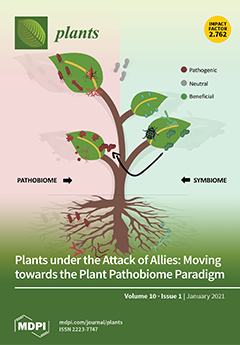
2021 Plants
A combination of extracts from chrysanthemum were found to be more effective in treating hyperuricemia and potentially developing anti-hyperuricemic functional foods.
Network Pharmacology Chrysanthemum Cornus Officinalis Hypouricemic Effects Uric Acid
Hypouricemic Effects of Chrysanthemum indicum L. and Cornus officinalis on Hyperuricemia-Induced HepG2 Cells, Renal Cells, and Mice
Kim OK, Yun JM, Lee M, Kim D, Lee J
Review Articles
Review articles summarise and critically evaluate the current state of research on a specific topic or field by synthesising multiple primary research studies.

Modified Guizhi Shaoyao Zhimu Decoction in the treatment of gout: A systematic review and meta-analysis
2022 Jun Pharmacological Research - Modern Chinese Medicine Liu H, Chi X, Zhang H, Shi H, Pan J, Wang Y, et al.
Systematic Review Meta-Analysis Gout Gui Zhi Shao Yao Zhi Mu DecoctionGuizhi Shaoyao Zhimu Decoction was more effective and had fewer adverse reactions compared to the control group in the treatment of gout and the combined use of modified GSZD with other treatments showed decreased levels of C-reactive protein and erythrocyte sedimentation rate.

Systematic Review and Meta-analysis of Electoacupunture Efficacy on Acute Gout
2022 Jun 01 Journal of Korean Medicine Hwang JH, Song A, Song HS
Systematic Review Meta-AnalysisElectroacupuncture treatment may be effective for treating acute gout.
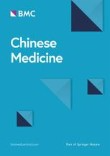
Chinese herbal medicine for gout: a review of the clinical evidence and pharmacological mechanisms
2020 Feb 12 Chinese Medicine Chi X, Zhang H, Zhang S, Ma K
Compared with chemical drugs like colchicine, eloricoxib and celecoxib, TCM herbs have advantages in slowing down the severity and frequency of attacks, reducing the concentration of uric acid in blood with fewer side effects.
Review Article Arthritis
Efficacy and tolerability ofGuizhi-Shaoyao-Zhimudecoction in gout patients: a systematic review and Meta-analysis
2020 Jan 01 Pharmaceutical Biology Zhang Q, Li R, Liu J, Peng W, Fan W, Gao Y, et al.
Our present works suggested that Guizhi-Shaoyao-Zhimu decoction (GSZD) could be considered as an effective alternative remedy for clinical treatment of gout.
Systematic Review Meta-Analysis Gui Zhi Shao Yao Zhi Mu Decoction
Effectiveness of Cherries in Reducing Uric Acid and Gout: A Systematic Review
2019 Dec 04 Evidence-Based Complementary and Alternative Medicine Chen PE, Liu CY, Chien WH, Chien CW, Tung TH
Systematic Review Cherry Gout Uric AcidGout patients regularly ingesting cherry extract/juice reported fewer gout flare ups than those patients who did not supplement their diets with cherry products.
Clinical Trials
Clinical trials are research studies that involve people and are conducted to evaluate the safety and efficacy of new treatments or interventions, such as drugs, medical devices, or behavioural therapies.

Effects of luteolin-rich chrysanthemum flower extract on purine base absorption and blood uric acid in Japanese subjects
2022 Jan 10 Functional Foods in Health and Disease Takara T, Yamamoto K, Suzuki N, Yamashita S, Iio S, Kakinuma T, et al.
Randomised Controlled Trial Uric Acid Chrysanthemum LuteolinA daily dose of Chrysanthemum flower extract was found to significantly reduce serum uric acid levels, potentially improving hyperuricemia.

A 12-Week, Multicenter, Randomized, Double-Blind, Placebo-Controlled Clinical Trial for Evaluation of the Efficacy and Safety of DKB114 on Reduction of Uric Acid in Serum
2020 Dec 10 Nutrients Park YH, Kim DH, Lee JS, Jeong HI, Lee KW, Kang TH
Randomised Controlled Trial Chinese Cinnamon Gout Uric Acid HyperuricemiaDKB114, a mixture of Linn flower extract, effectively reduces serum uric acid level, suggesting its potential as a dietary supplement for hyperuricemia treatment.
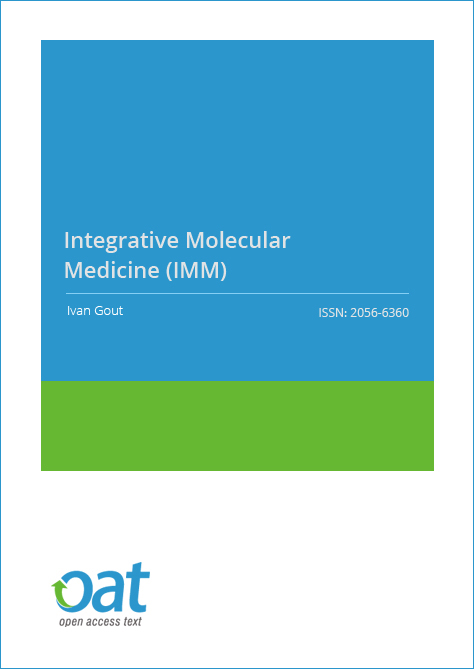
Luteolin-rich chrysanthemum flower extract suppresses baseline serum uric acid in Japanese subjects with mild hyperuricemia
2017 Jan Integrative Molecular Medicine Hirano M, Takeda S, Hitoe S, Shimoda H
Randomised Controlled Trial Uric Acid Chrysanthemum Luteolin GoutLuteolin, found in chrysanthemum flower extract, can potentially reduce serum uric acid levels, suggesting it may help prevent gout.

Chrysanthemum flower oil inhibits diet-induced serum uric acid elevation in adult male subjects
2015 Jul 28 Nutrafoods Ueda T, Honda S, Morikawa H, Kitamura S, Iwama Y, Nakagawa K
Randomised Controlled Trial Gout Uric Acid ChrysanthemumChrysanthemum flower oil significantly reduces diet-induced elevation of serum uric acid in Japanese males with high baseline levels.
Study Protocols
Published study protocols are detailed plans that outline the objectives, methodology, statistical analyses, and organisation of a research study that have been made publicly available for others to review and use as a reference.
Presentation Slides

Systematic Review
Electroacupuncture treatment may be effective for treating acute gout.
Hwang JH, Song A, Song HS

Systematic Review
Guizhi Shaoyao Zhimu Decoction was more effective and had fewer adverse reactions compared to the control group in the treatment of gout and the combined use of modified GSZD with other treatments showed decreased levels of C-reactive protein and erythrocyte sedimentation rate.
Liu H, Chi X, Zhang H, Shi H, Pan J, Wang Y, Xue X, Lu Y, Song X, Ma K

Traditional Chinese medicine exhibits fewer side effects while effectively controlling inflammation and serum uric acid in gout patients.
Liu ZQ, Sun X, Liu ZB, Zhang T, Zhang LL, Wu CJ

Randomised Controlled Trial
A daily dose of Chrysanthemum flower extract was found to significantly reduce serum uric acid levels, potentially improving hyperuricemia.
Takara T, Yamamoto K, Suzuki N, Yamashita S, Iio S, Kakinuma T, Baba A, Takeda S, Yamada W, Nagata M, Shimoda H

Network Pharmacology
A combination of extracts from chrysanthemum were found to be more effective in treating hyperuricemia and potentially developing anti-hyperuricemic functional foods.
Kim OK, Yun JM, Lee M, Kim D, Lee J

Randomised Controlled Trial
DKB114, a mixture of Linn flower extract, effectively reduces serum uric acid level, suggesting its potential as a dietary supplement for hyperuricemia treatment.
Park YH, Kim DH, Lee JS, Jeong HI, Lee KW, Kang TH

Systematic Review
Gout patients regularly ingesting cherry extract/juice reported fewer gout flare ups than those patients who did not supplement their diets with cherry products.
Chen PE, Liu CY, Chien WH, Chien CW, Tung TH
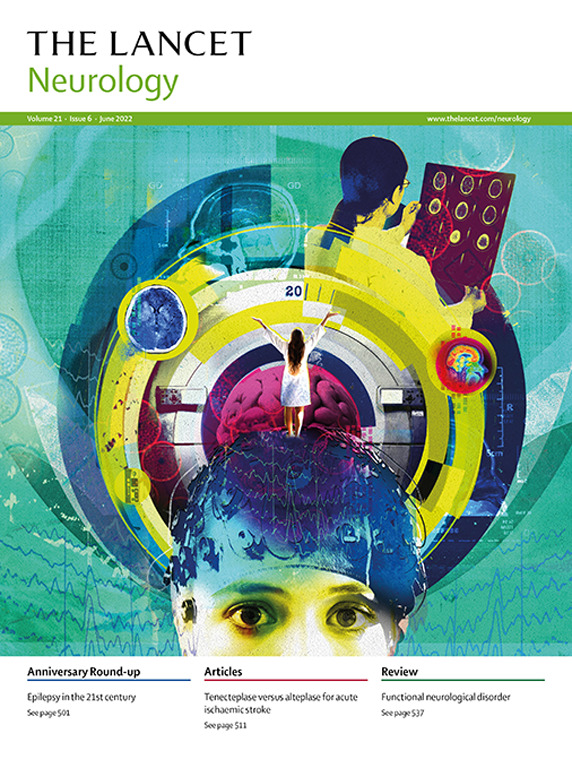
Review Article
Traditional Chinese Medicine provides a valuable, holistic approach to Parkinson's disease prevention and treatment, offering another angle besides Western medicinal practices.
SongLi, WeidongLe
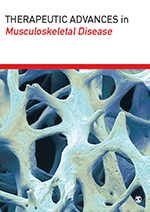
Review Article
Cherries and their products have antioxidant properties, the capacity to inhibit the acute inflammatory response to urate crystals, and the ability to decrease bone resorption that is characteristic of gouty bone erosions.
Collins MW, Saag KG, Singh JA
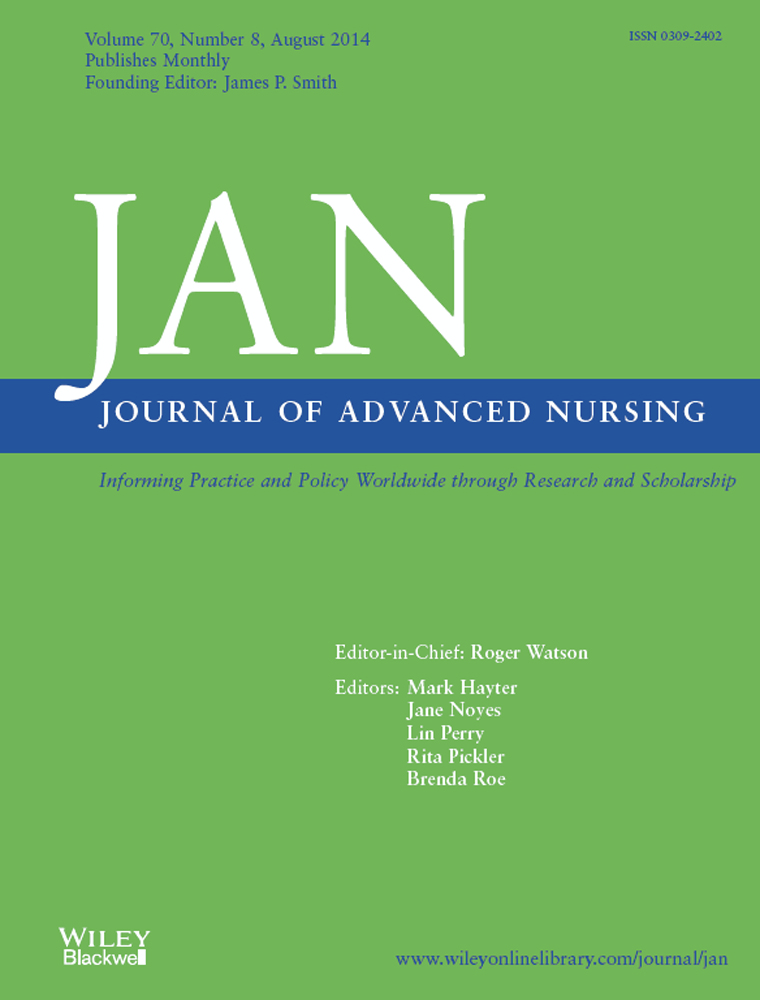
Systematic Review
Skin-patches of Chinese herbal medicine combined with Western medicine seemed to be more effective than Western medicine alone to reduce the pain scores of patients with acute gouty arthritis.
Wang HR, Fu Q, Liu Z, Li ML, Zhai SQ

Network Pharmacology
A mixture of Chrysanthemum indicum Linne flower and Cinnamomum cassia significantly mitigates hyperuricemia in rats by inhibiting xanthine oxidase activity and enhancing uric acid excretion.
Lee YS, Son E, Kim SH, Lee YM, Kim OS, Kim DS

Randomised Controlled Trial
Luteolin, found in chrysanthemum flower extract, can potentially reduce serum uric acid levels, suggesting it may help prevent gout.
Hirano M, Takeda S, Hitoe S, Shimoda H

Randomised Controlled Trial
Chrysanthemum flower oil significantly reduces diet-induced elevation of serum uric acid in Japanese males with high baseline levels.
Ueda T, Honda S, Morikawa H, Kitamura S, Iwama Y, Nakagawa K
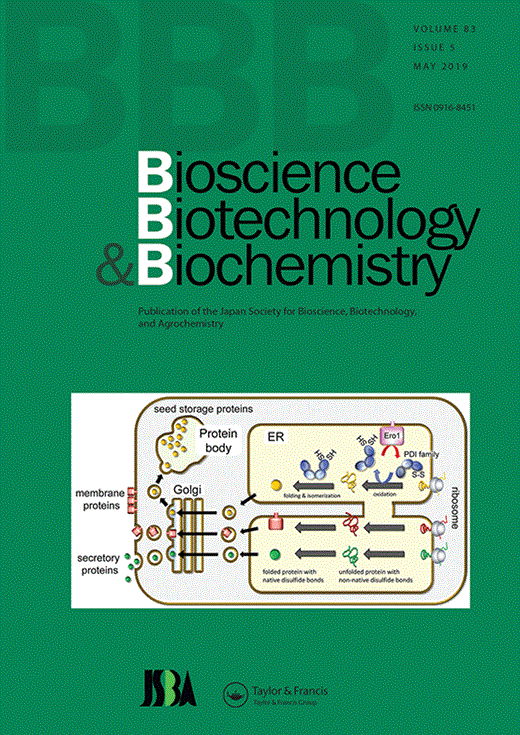
Network Pharmacology
Chrysanthemum flower oil can effectively decrease uric acid levels in rats, by reducing production in the liver and enhancing excretion from the kidney.
Honda S, Kawamoto S, Tanaka H, Kishida H, Kitagawa M, Nakai Y, Abe K, Hirata D

Systematic Review
Chinese herbal medicine may help in functional recovery in gout patients, while safely controlling serum uric acid level and inflammation severity.
Li XX, Han M, Wang YY, Liu JP
Executive Summary
Write an executive summary in the form of a blog article on the topic of "Research into Chinese medicine treatment for Gout" summarising the research below and using language that can be easily understood by patients and avoiding medical jargon using a professional and caring tone of voice.
Write an executive summary in the form of a blog article on the topic of "Researched Chinese medicine treatments for Gout" summarising the research below in an objective and easy to understand way, and using language that can be easily understood by patients. Group the article into Chinese medicine treatments first, followed by nutrition and other treatments. Avoid using medical jargon and use a professional and caring tone of voice.
Write me a concise but easy to understand executive summary on the topic of "Chinese medicine treatments for Gout" based on the following research that I will give you. Your summary should be 2 paragraphs long in Australian English spelling and include references to the studies.
A Systematic Review published in 2022 in the journal Journal of Korean Medicine found that Electroacupuncture treatment may be effective for treating acute gout. This study aimed to examine the effectiveness of electroacupuncture (EA) in treating acute gout. A literature search was conducted using four international databases and eight randomized controlled trials (RCTs) were analyzed. Three evaluation tools were mainly used: Total Effective Rate (TER), Uric Acid (UA), and Pain Score (VAS). The results showed that EA, alone or in combination with other treatments, had a statistically significant level of improvement compared to Western medicine treatment, as indicated by the TER, VAS score, and UA level. However, the study has limitations such as geographical bias, small sample size, and high risk of bias. Further well-designed studies are needed to support these findings.
A Systematic Review published in 2022 in the journal Pharmacological Research - Modern Chinese Medicine found that Guizhi Shaoyao Zhimu Decoction was more effective and had fewer adverse reactions compared to the control group in the treatment of gout and the combined use of modified GSZD with other treatments showed decreased levels of C-reactive protein and erythrocyte sedimentation rate. This meta-analysis of 22 randomized controlled trials showed that Guizhi Shaoyao Zhimu Decoction (GSZD) was more effective and had lower adverse reactions compared to the control group for gout, and the combined use of modified GSZD with other treatments showed significant decreases in C-reactive protein and erythrocyte sedimentation rate levels.
A published in 2022 in the journal Journal of Pharmacy and Pharmacology found that Traditional Chinese medicine exhibits fewer side effects while effectively controlling inflammation and serum uric acid in gout patients. In the methodology, the research used herbs as a primary resource, focusing on their phytochemicals. The study examined how these phytochemicals exert anti-inflammatory effects by inactivating the NF-κB and NLRP3 inflammasome, as well as lowering uric acid through the inhibition of xanthine oxidase activity and the up-regulation of URAT1 and GLUT9 expressions. Further, the study explored the relation of changes in intestinal flora and gout, with Chinese herbs acting like prebiotics to modify this flora. In terms of results, the study found an increase in the abundance of certain beneficial bacteria, such as Bifidobacterium, Lactobacillus, Bacteroidetes, and Prevotella, and a decrease in Proteus and the Firmicutes/Bacteroidetes ratio post traditional Chinese medicine treatment. The alterations in the intestinal flora led to changes in its metabolites, which eventually impacted inflammatory signaling pathways, regulating gene expressions and suppressing xanthine oxidase activity. The study also observed the relation between the disruption of the intestinal barrier and the onset of gout.
A Randomised Controlled Trial published in 2022 in the journal Functional Foods in Health and Disease found that A daily dose of Chrysanthemum flower extract was found to significantly reduce serum uric acid levels, potentially improving hyperuricemia. In the methodology, two studies were conducted where 44 healthy Japanese men and women with slightly elevated serum uric acid levels were split into two groups, active and placebo, using a randomized computerized system. The active group received 100mg of Chrysanthemum flower extract containing 1mg of luteolin. In the first study, purine naturally found in food was ingested alongside the flower extract, and the participants' serum uric acid levels were measured over time. In the second study, the extract or a placebo was taken daily over 12 weeks. Changes in uric acid levels were the primary outcome, and blood, urine, and body parameters were checked to confirm the safety of the extract. For the results, in the first study, there were no significant differences found in serum uric acid levels between the group that consumed the extract and the placebo group following a purine-rich meal. However, in the second study spanning 12 weeks, the group that took the Chrysanthemum flower extract had significantly lower uric acid levels than the placebo group. Safety tests showed no adverse effects from taking the extract.
A Network Pharmacology published in 2021 in the journal Plants found that A combination of extracts from chrysanthemum were found to be more effective in treating hyperuricemia and potentially developing anti-hyperuricemic functional foods. The methodology used in this study involved treating human liver cancer cells, mouse renal proximal tubule cells and hyperuricemic mice with uric acid extracted from two different plants, specifically L. (Ci) and Siebold and Zucc. (Co). It was found that the extracts from these two plants, both individually and in combination, suppressed the activity of certain enzymes involved in uric acid metabolism and influenced the expression of corresponding proteins. In discussing the results, the study identified that the combined effect of these two extracts was significantly stronger in suppressing uric acid accumulation compared to using each extract on its own. This was evidenced by an increased excretion of waste products associated with uric acid metabolism when using the combination of Ci and Co. There was also a decrease in the expression of certain proteins that facilitate uric acid accumulation. Therefore, the data suggests that a mixture of Ci and Co extracts could be effective in developing functional foods to combat hyperuricemia.
A Randomised Controlled Trial published in 2020 in the journal Nutrients found that DKB114, a mixture of Linn flower extract, effectively reduces serum uric acid level, suggesting its potential as a dietary supplement for hyperuricemia treatment. The research employed a randomized, double-blind, placebo-controlled clinical trial conducted across a span of 12 weeks. A total of 80 asymptomatic hyperuricemic subjects (serum uric acid level between 7.0-9.0 mg/dL) were selected and equally split into two groups. One group was administered DKB114, the investigational mixture of extracts, while the other group received a placebo. After six weeks of administration, the levels of serum uric acid were evaluated, revealing no significant difference between the two groups. By the end of the 12th week, however, subjects in the DKB114 group exhibited a noticeably larger decrease in their serum uric acid levels when compared to the placebo group. Additionally, various other health indicators including C-reactive protein and apoprotein B levels showed significant trends favoring DKB114. Further evaluations during the trial included clinical pathological tests, weight measurements and vital signs, and electrocardiogram tests which confirmed the safety of DKB114. No significant harmful effects or differences were detected in comparison to the placebo group. This concludes the positive impact and safe use of DKB114 for patients with elevated serum uric acid levels.
A Systematic Review published in 2019 in the journal Evidence-Based Complementary and Alternative Medicine found that Gout patients regularly ingesting cherry extract/juice reported fewer gout flare ups than those patients who did not supplement their diets with cherry products. The six studies included in this systematic review reported decreases in the incidence and severity of gout following the ingestion of cherries. Gout patients regularly ingesting cherry extract/juice reported fewer gout flare ups than those patients who did not supplement their diets with cherry products. Overall, we observed a positive correlation between the consumption of tart cherry juice and a decrease in serum uric acid concentration.
A Review Article published in 2019 in the journal The Lancet Neurology found that Traditional Chinese Medicine provides a valuable, holistic approach to Parkinson's disease prevention and treatment, offering another angle besides Western medicinal practices. The paper uses historical analysis to examine how Parkinson's disease-like symptoms were described and treated in ancient Chinese medical texts, with a focus on the theories of Yin-Yang imbalance and five-element theories, along with the use of various herbs, acupuncture and physical exercise. It draws from a range of historical periods, from as early as 425-221 BC up until the Ming dynasty (1368-1644 AD), discussing different traditional treatments like Zhenwu decoction, Gegen decoction, Jin Ya Wine, and Ding Zhen Pill. In discussing the results, the paper synthesizes these historical treatments with modern practices, pointing out that many traditional remedies, now updated with contemporary knowledge, continue to be used in China. These include the renamed Ding Zhen Decoction, dietary therapies, acupuncture, moxibustion, Tai Chi, and Qigong. It was found that these approaches could improve both motor and non-motor symptoms for patients with Parkinson's disease. Many of the ingredients in these treatments have bioactive molecules which have shown therapeutic benefits. In addition to treatment, the study also emphasizes the value of early disease prevention in line with TCM's approach, noting that certain behaviors typical of the tradition such as tea-drinking and physical exercises have been observed to offer a preventive effect for Parkinson's patients.
A Review Article published in 2019 in the journal Therapeutic Advances in Musculoskeletal Disease found that Cherries and their products have antioxidant properties, the capacity to inhibit the acute inflammatory response to urate crystals, and the ability to decrease bone resorption that is characteristic of gouty bone erosions. Phenolics, and more specifically, the anthocyanins found abundantly in cherries, have been linked to the inhibition of IL-6, TNF-α, IL-1β, IL-8, COX-I and COX-II, as well as the downregulation of NFkB-mediated osteoclastogenesis, suggesting that cherries may have the ability to reduce both acute and chronic inflammation that play a role in recurrent gout flares and chronic destructive arthropathy. Additionally, cyanidin-3-glucoside enhanced genes related to osteoblast differentiation, suggesting that anthocyanins may also play a role in bone formation.
A Systematic Review published in 2018 in the journal Journal of Advanced Nursing found that Skin-patches of Chinese herbal medicine combined with Western medicine seemed to be more effective than Western medicine alone to reduce the pain scores of patients with acute gouty arthritis. Nineteen studies met our inclusion criteria. After synthesizing the data, the results showed that skin-patches of CHM combined with Western medicine seemed to be more effective than Western medicine alone for pain relief in patients with acute gouty arthritis and had fewer adverse events. Due to the quality of the data, larger and more rigorously designed clinical trials with proper outcome measures are necessary.
A Network Pharmacology published in 2017 in the journal Evidence-Based Complementary and Alternative Medicine found that A mixture of Chrysanthemum indicum Linne flower and Cinnamomum cassia significantly mitigates hyperuricemia in rats by inhibiting xanthine oxidase activity and enhancing uric acid excretion. In this experiment, the authors evaluated the impact of a combined extract from Chrysanthemum indicum Linne flower (CF) and Cinnamomum cassia (CB) on hyperuricemia, a condition associated with excessive uric acid in the bloodstream. The study was conducted on both normal and hyperuricemic rats induced by potassium oxonate. Uric acid levels and renal excretion were primarily measured to analyse the potential antihyperuricemic properties of the CF and CB mix. From the experiment, it was found that the CF and CB blend led to a significant reduction in uric acid levels in both normal and hyperuricemic rats, with the effect being stronger compared to either CF or CB in isolation. Additionally, the mixture caused an increase in uric acid elimination through the kidneys in the hyperuricemic rats, pointing to its potential antihyperuricemic action. It was also discovered that the mixture and its primary components, namely, chlorogenic acid, isochlorogenic acid, coumarin, cinnamaldehyde, trans-cinnamic acid, and o-methoxycinnamaldehyde, mitigated the action of xanthine oxidase (an enzyme that accelerates uric acid production) in vitro. This partial xanthine oxidase inhibition sheds light on the underlying mechanism of the antihyperuricemic effect by the CF and CB mixture.
A Randomised Controlled Trial published in 2017 in the journal Integrative Molecular Medicine found that Luteolin, found in chrysanthemum flower extract, can potentially reduce serum uric acid levels, suggesting it may help prevent gout. The research involved two double-blind placebo-controlled studies examining the impacts of chrysanthemum flower extract enriched with luteolin on serum uric acid levels. In a single-dose study, fasting participants consumed a capsule loaded with the luteolin-rich extract before partaking in a high purine meal, with uric acid levels evaluated over time. The second study involved repeated consumption of the capsule over a 4-week period, with fasting serum uric acid measured before and after consumption. The research found that although luteolin did not significantly affect uric acid levels immediately after consumption, there was an observed decrease in these levels following four weeks of continued ingestion. Most notably, subjects with a baseline uric acid level between 5.5 to 7.0 mg/dL saw a significant reduction after they consumed chrysanthemum flower extract. The trial also established that no adverse effects resulted from the ingestion of the extract.
A Randomised Controlled Trial published in 2015 in the journal Nutrafoods found that Chrysanthemum flower oil significantly reduces diet-induced elevation of serum uric acid in Japanese males with high baseline levels. In the study, a randomised, double-blind, cross-over comparison method was employed. Twenty male individuals from Japan were selected and segregated into two groups, one of which received the chrysanthemum flower oil, while the other group was given a placebo. Blood and urine samples were systematically collected from these individuals and meticulously analyzed with a focus on levels of serum uric acid. The analysis of these samples divulged some noteworthy findings. There was no observed suppression of the diet-induced serum uric acid elevation in those subjects whose baseline serum uric acid values ranged betwixt 5.5 and 8.0 mg/dl when given the chrysanthemum flower oil. However, for those subjects with a baseline serum uric acid level of 7.1 mg/dl or greater, the application of this oil significantly reduced this elevation. Based on these findings, it was concluded that chrysanthemum flower oil indeed has an effective role in reducing uric acid elevation, specifically for Japanese male subjects belonging to the higher baseline bracket.
A Network Pharmacology published in 2014 in the journal Bioscience, Biotechnology, and Biochemistry found that Chrysanthemum flower oil can effectively decrease uric acid levels in rats, by reducing production in the liver and enhancing excretion from the kidney. In this study, the researchers developed a hyperuricemia model by feeding rats a specific chrysanthemum flower oil enriched diet. Hyperuricemia is a condition of elevated uric acid levels which the team sought to decrease. Chrysanthemum flower oil was chosen due to its polyphenol content, substances known to have positive health benefits. By administering this oil orally to rats on this diet, they were able to monitor its impact on the rats' serum uric acid levels. The results showed that the chrysanthemum oil had a significant impact on controlling and reducing uric acid levels. This was achieved through two primary mechanisms. Firstly, there was a demonstrated inhibition of xanthine oxidase activities in the liver. This enzyme plays a crucial role in the conversion process that leads to the creation of uric acid. Secondly, the oil increased uric acid levels in the urine, suggesting greater excretion of it. This was further confirmed by the up-regulation of uric acid transporter genes in the rats' kidneys, which enhances the excretion process.
A Systematic Review published in 2013 in the journal Clinical Rheumatology found that Chinese herbal medicine may help in functional recovery in gout patients, while safely controlling serum uric acid level and inflammation severity. This systematic review evaluated a total of 57 randomized clinical trials on Chinese herbal medicine for gout up to December 2012, involving 4,527 patients. The methodology employed the Cochrane risk of bias tool to assess the quality of these trials and used RevMan 5.2 software to synthesize results. However, the overall quality of these trials was generally poor and none reported on health-related quality of life in patients. Through the trials evaluated, it was found that Chinese herbal medicine may not be significantly more effective than conventional medicines in terms of pain relief. However, when combined with conventional medicines, herbal medicine may exhibit better effectiveness. In trials that reported relief from function limitations, herbal remedies showed improved efficacy over standard treatments. However, there was no evidence to suggest that herbal medicine could prevent recurrence of gout. In closing, the review noted that 25 trials out of 41 found significance in lowering serum uric acid levels through the use of Chinese herbal medicine. Further, herbal medicine seemed more effective in inflammation relief when compared to conventional therapies. Importantly, data suggested the herbal treatments resulted in fewer side reactions as compared to conventional treatment methods.
Moderation Tools
Topic
Sign In
Users not signed in are limited to viewing the 5 most recent items of content.